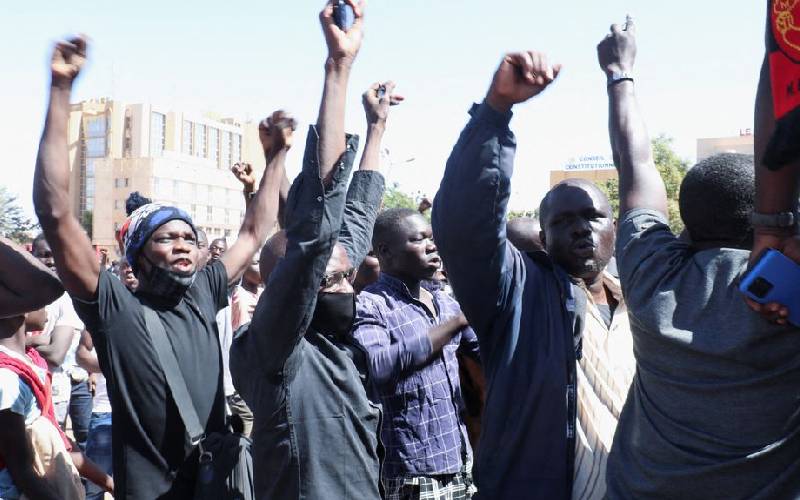×
The Standard e-Paper
Kenya’s Boldest Voice

People show their support for the military after Burkina Faso President Roch Kabore was detained at a military camp in Ouagadougou, Burkina Faso on January 24, 2022. [Reuters]
More than 1,000 people gathered in Burkina Faso's capital Ouagadougou on Tuesday in support of a military coup that a day earlier ousted President Roch Kabore, dissolved the government and suspended the constitution.